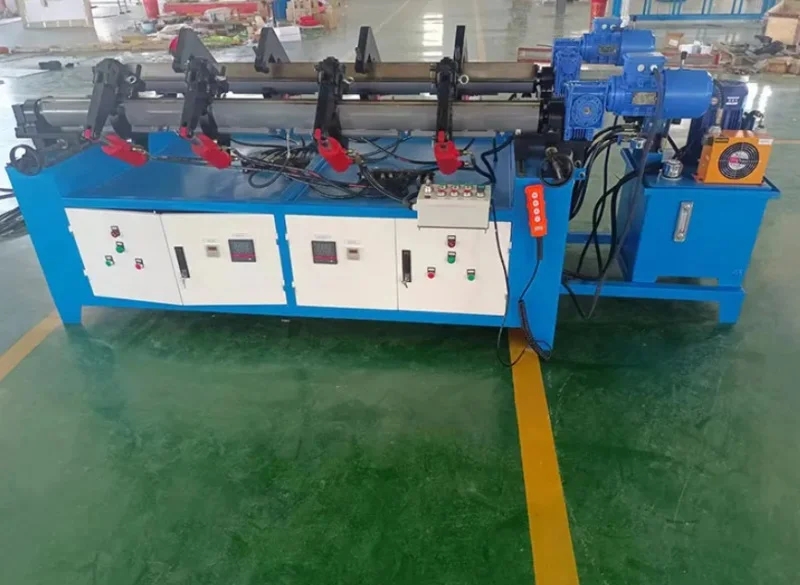G11 epoxy glass laminate is a high-performance material, often used in electrical and mechanical applications due to its excellent thermal, mechanical, and electrical properties. It consists of woven fiberglass cloth impregnated with epoxy resin, resulting in a highly durable composite. However, cutting G11 epoxy glass laminate requires specific tools and techniques to achieve precise, clean cuts without damaging the material or compromising its integrity. In this blog post, Hangzhou Blue Sun will share G11 epoxy glass laminate cutting techniques, safety precautions, and tips for achieving the best results.
1. Selecting the Right Tools
Due to its dense and abrasive nature, G11 epoxy glass laminate requires specialized cutting tools designed to handle hard composites. Some options include:
- Diamond-Coated Blades: Diamond-coated blades are highly effective for cutting G11 laminate as they can handle the hardness and minimize tool wear. The diamond particles grind through the material, resulting in a cleaner cut.
- Carbide-Tipped Blades: Although not as durable as diamond-coated options, carbide-tipped blades can be used for thinner G11 sheets. However, carbide blades tend to dull quickly with prolonged use on G11.
- High-Speed Saws: Band saws, circular saws, and jigsaws with high-speed settings and the right blades are suitable for G11 cutting. The increased speed reduces friction and prevents overheating.
- CNC Machines: For complex or highly precise cuts, a CNC router equipped with diamond or carbide tooling offers excellent results. CNC machines allow for fine control over cutting speed and depth, ensuring consistency in cuts.
2. Preparing for the Cut
Proper preparation is crucial for achieving clean cuts and preventing potential hazards when working with G11 epoxy glass laminate.
- Clamping: Secure the G11 sheet tightly to avoid movement during cutting. Unstable material can lead to uneven cuts and damage to the workpiece.
- Marking: Use a fine-tipped marker to mark the cutting lines precisely. Ensure that all measurements are accurate, as re-cutting G11 laminate is difficult and may lead to uneven edges.
- Protective Film: Some G11 sheets come with a protective film layer. Remove this layer only after cutting to protect the surface from scratches.

3. Cutting Techniques
There are several techniques available, depending on the cutting equipment and desired finish quality. Here are a few effective methods:
a. Using a Circular Saw
A circular saw with a diamond-coated blade is an efficient tool for cutting straight lines on G11 laminate.
1. Setup: Attach a diamond-coated blade to the circular saw, ensuring it is securely fixed.
2. Speed Setting: Set the saw to a high-speed setting to reduce material chipping and burning.
3. Cutting: Hold the saw steadily and make the cut in one pass, if possible. Stopping midway may cause blade binding or uneven edges.
4. Coolant: If available, use a water spray or coolant to reduce blade heating. This helps extend blade life and prevents resin scorching.
b. Using a Band Saw
For intricate cuts or curves, a band saw with a diamond or carbide blade is recommended.
1. Blade Selection: Use a fine-toothed diamond blade for smoother cuts.
2. Feed Rate: Maintain a slow, consistent feed rate to minimize blade wear and avoid splintering.
3. Stabilization: If possible, use a support guide to keep the laminate steady.
4. Post-Cutting Sanding: After cutting, sand the edges lightly to remove any burrs or roughness.
c. CNC Cutting
CNC machining is the best method for highly detailed or repetitive cuts on G11 epoxy glass laminate.
1. Tooling: Choose a diamond-coated or carbide end mill, depending on the thickness and precision required.
2. Cut Depth and Speed: Set appropriate cut depths (usually 1-2 mm per pass) and speed (depending on the CNC' s capability). Excessive depth or speed can cause laminate delamination.
3. Vacuum System: Use a vacuum system to remove dust and debris during cutting. G11 dust is harmful when inhaled and can damage CNC components if it accumulates.

5. Safety Precautions
Working with G11 epoxy glass laminate requires strict adherence to safety protocols due to the material's abrasive nature and glass fiber content.
- Personal Protective Equipment (PPE): Wear gloves, safety goggles, and a dust mask or respirator rated for fine particles to protect against airborne fiberglass dust.
- Ventilation: Ensure your workspace has good ventilation or use a dust extraction system to prevent fiberglass particles from accumulating.
- Minimizing Dust Exposure: Avoid prolonged exposure to G11 dust, as it can cause respiratory issues. Clean up any dust or debris immediately after cutting using a vacuum or wet mop.
6. Finishing and Post-Cut Care
After cutting, you may need to smooth or finish the edges of the G11 laminate for a polished look and to remove any sharp fibers.
- Edge Smoothing: Use fine-grit sandpaper (e.g., 220-grit) to sand the edges and remove burrs. Avoid coarse sandpaper as it can splinter the fibers.
- Deburring Tool: A deburring tool can help eliminate sharp edges along the cut lines, improving safety and preventing fiber exposure.
- Protective Coating: If the cut edges will be exposed to moisture or chemicals, apply a sealant or epoxy coating to prevent moisture absorption, which could degrade the material over time.
Conclusion
Cutting G11 epoxy glass laminate is challenging due to its hard, abrasive nature and the potential hazards posed by fiberglass dust. With the right tools, techniques, and safety measures, however, it' s possible to achieve clean, precise cuts that maintain the material' s integrity. Whether using a circular saw for straight cuts, a band saw for intricate shapes, or CNC machinery for precision work, the key lies in proper preparation and understanding of G11' s unique properties. Always prioritize safety when working with G11 laminate and take the time to ensure a clean and controlled cutting process.
https://www.bluesun-elec.com.cn/How-to-Cut-G11-Epoxy-Glass-Laminate.html
www.bluesun-elec.com.cn
Blue Sun

